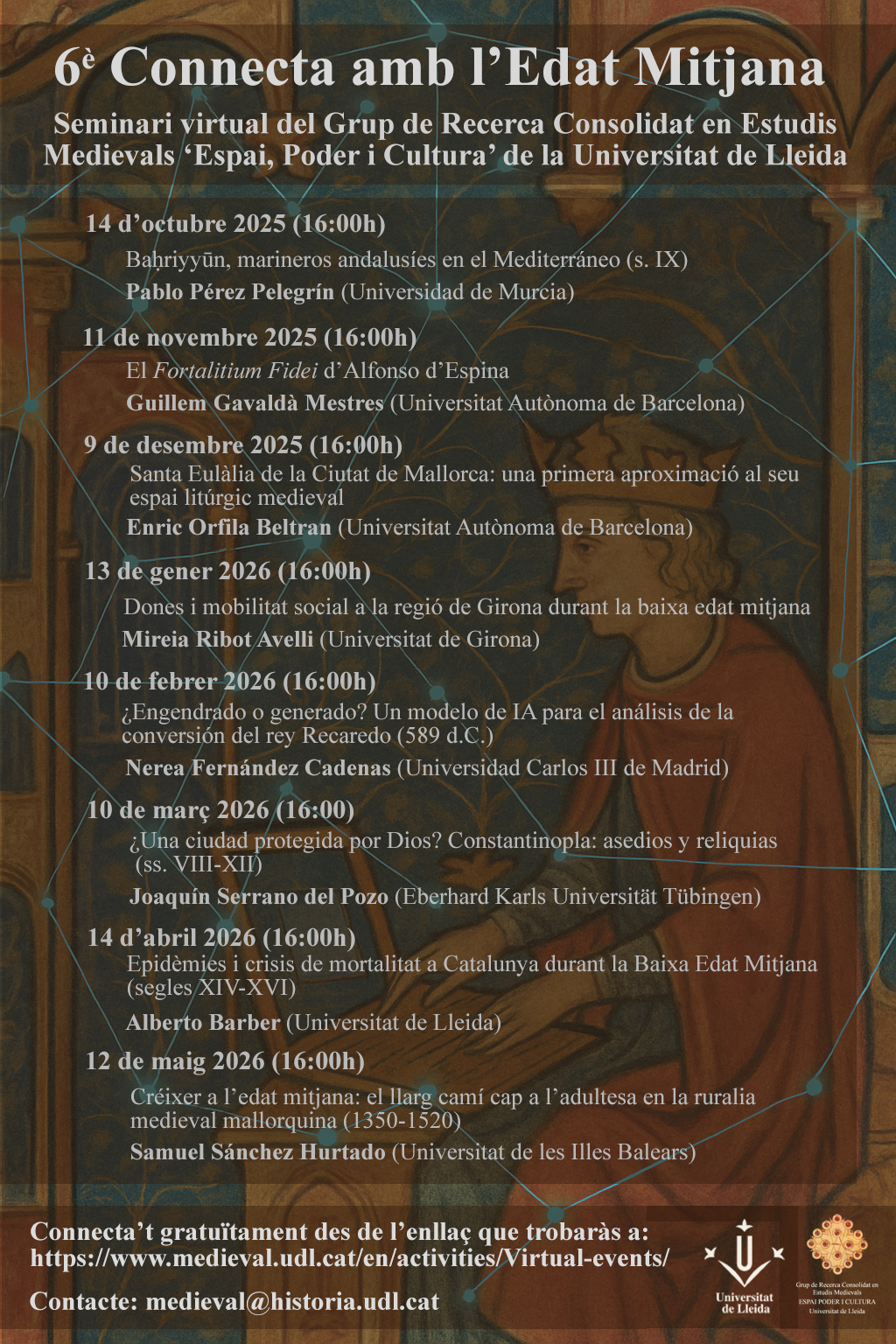Current virtual events
Download Pdf6th Connecta amb l'Edat Mitjana (October'25-May'26)
Programme.pdf
- 14 de octubre 2025 (16:00h)
Baḥriyyūn, marineros andalusíes en el Mediterráneo (s. IX)
Pablo Pérez Pelegrín (Universidad de Murcia)
Full video available on our YouTube channel
- 11 de noviembre 2025 (16:00h)
El Fortalitium Fidei d’Alfonso d’Espina
Guillem Gavaldà Mestres (Universitat Autònoma de Barcelona)
Full video available on our YouTube channel
- 9 de diciembre 2025 (16:00h)
Santa Eulàlia de la Ciutat de Mallorca: una primera aproximació al seu espai litúrgic medieval
Enric Orfila Beltran (Universitat Autònoma de Barcelona)
- 13 de enero 2026 (16:00h)
Dones i mobilitat social a la regió de Girona durant la baixa edat mitjana
Mireia Ribot Avelli (Universitat de Girona)
- 10 de febrero 2026 (16:00h)
¿Engendrado o generado? Un modelo de IA para el análisis de la conversión del rey Recaredo (589 d.C.)
Nerea Fernández Cadenas (Universidad Carlos III de Madrid)
- 10 de marzo 2026 (16:00)
¿Una ciudad protegida por Dios? Constantinopla: asedios y reliquias (ss. VIII-XII)
Joaquín Serrano del Pozo (Eberhard Karls Universität Tübingen)
- 14 de abril 2026 (16:00h)
Epidèmies i crisis de mortalitat a Catalunya durant la Baixa Edat Mitjana (segles XIV-XVI)
Alberto Barber (Universitat de Lleida)
- 12 de mayo 2026 (16:00h)
Créixer a l’edat mitjana: el llarg camí cap a l’adultesa en la ruralia medieval mallorquina (1350-1520)
Samuel Sánchez Hurtado (Universitat de les Illes Balears)
Free access
 Session link
Session link
More information: medieval@historia.udl.cat


